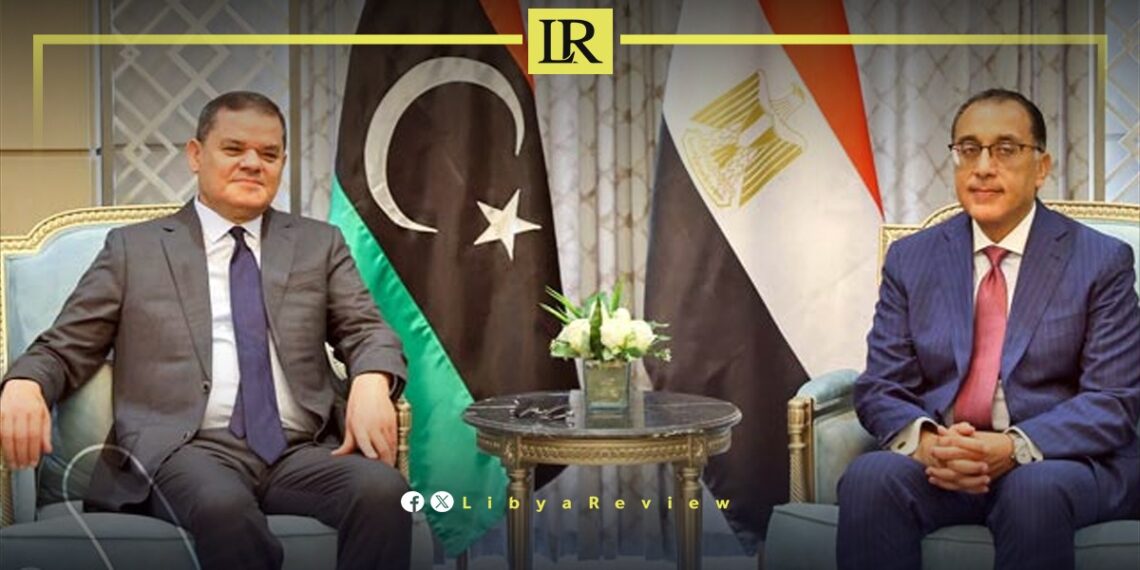Libyan Prime Minister of the Government of National Unity (GNU), Abdel-Hamid Dbaiba and his Egyptian counterpart, Mostafa Madbouly, have agreed to support Egypt’s electricity sector. The aim is to stabilise the national grid and activate electrical interconnection between the two countries.
On Thursday, Dbaiba met with Madbouly at the Egyptian Prime Minister’s Office in Cairo. Dbeibah congratulated Madbouly on his renewed leadership and the formation of the new Egyptian government, which was sworn in before President Abdel Fattah el-Sisi on Wednesday.
According to a statement from the Libyan government, the meeting focused on areas of cooperation and the activation of agreements signed between the two nations. They reviewed the outcomes of the 2021 Egyptian-Libyan High Committee meetings held in Cairo and planned for the next meeting to boost cooperation and investment.
The two leaders also discussed supporting the private sector in both countries, organising trade fairs and conferences for Egyptian and Libyan industries, and forming a joint Egyptian-Libyan Business Council under government supervision.
The Libyan government reported that Dbaiba and Madbouly agreed on collaboration in implementing the national sewage project launched by the Libyan Government of National Unity. They plan to benefit from Egypt’s experience in this critical area.
In April, the Libyan Minister of Labor and Rehabilitation, Abdullah Al-Sharif Arhouma held talks with CLS Learning Solutions in the Egyptian capital, Cairo. The discussions focused on fostering collaborative efforts in training and development sectors.
According to the Ministry’s media office, Minister Arhouma explored the possibility of bringing international trainers and experts from the Arab Republic of Egypt to Libya. The goal is to enhance and train the ministry’s staff with professionalism and to introduce modern systems and platforms in the ministry’s information technology management.
Minister Arhouma received detailed presentations on the company’s program for selecting and filtering trainees designated for international training. This involves conducting tests through an international information network.


